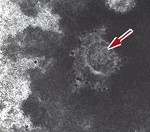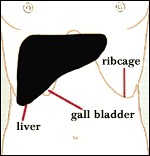|
What is 'Action on Hepatitis C' ?
'Action on Hepatitis C' is a voluntary organisation. It was founded and is based in the United Kingdom, drawing support from all parts of the country.
'Action on Hepatitis C' was formed in 1999 out of deep professional and service user concern at the lack of an overall government strategy to address the twin problems of hepatitis C and drug use. There are a great many issues that urgently need to be resolved at a UK national level
'Action on Hepatitis C' is made up a group of people who come from widely varied professional and/or service user backgrounds, but who all share a common vision and interest in raising the profile of hepatitis C and tackling this disease.
Membership of 'Action on Hepatitis C' is by invitation.
>
|
 |
Why is hepatitis C important ?
Hepatitis C is an infectious disease. It is caused by a virus (hepatitis C virus, or 'HCV' for short - seen above on an electron micrograph), and is quite easily caught through some routes, for example through the sharing of needles and syringes by people who inject drugs, or even just the sharing of injecting paraphernalia such as spoons, filters and cookers. It can also pass from an infected person to an uninfected person if the latter receives whole blood, a blood product (such as factor 8 used to treat haemophiliacs) or an organ or tissue for transplantation (such as a kidney or bone) from the former. Although less common, transmission through sexual activity and from mother-to-baby have also been described. Once in the body, the virus attacks the liver (see right), the largest organ in the human body and essential for a normal life. This virus can cause serious liver problems, such as cirrhosis and liver cancer, to develop over the following years, yet it may remain totally "silent" until one day the infected person wakes up to find that they have a very serious problem (for further information about hepatitis C, please see the 'General Clinical Section' and the 'Useful Links Section').
For information about numbers of hepatitis C positive people in England & Wales go to the PHLS/CDSC web site - click here and look up "disease facts". For Scottish data, go to the |
 |
SCIEH site on the "useful links" page.
What needs to be done ? While there is now a very useful treatment available for hepatitis C (a combination of injected interferon and oral ribavirin), and improved versions of this are appearing from time to time, combination therapy is not always appropriate for everyone. Prevention is better than cure, and 'Action on Hepatitis C' has a dual role - the group works to help ensure both the optimisation of the health and welfare of people living with hepatitis C and to ensure that the prevention of spread of this very serious disease is given the highest priority possible in the United Kingdom.
For this reason, 'Action on Hepatitis C' believes that the social and welfare dimension of care should be strong, and totally integrated into services for hepatitis C patients, their friends, families and loved ones, both pre- and post-diagnosis, and at every step of the way.
People living with hepatitis C are not just "livers on legs" !. The management and treatment of patients should reflect that reality.
Action on Hepatitis C
How do 'Action on Hepatitis C' work towards this end ?
'Action on Hepatitis C' works to raise the profile of hepatitis C itself, to help alleviate the medical and social problems encountered by people living with the virus, and to further the cause of prevention (both of progression in infected individuals and of viral spread from person to person) by exploring every possible avenue - including medical, social, political, educational - at every possible level (local, national and international). As of Spring 2001, the group had representatives on a number of highly influential bodies relevant to the cause of hepatitis C.
'Action on Hepatitis C' focusses particularly on the problems faced by people who use or have used drugs.
These web pages cover a number of (hopefully) useful and interesting points and issues of relevance, including clinical guidelines, new developments on the political front such as the fascinating and insightful November 2000 House of Lords debate on hepatitis C (on the 'What's new' pages), and tuberculosis. The 'Useful Links' page unites this web site with other web sites of importance with respect to all aspects of hepatitis C, while further links can be found on the other 'Action on Hepatitis C' sister sites to be found around the world wide web.
Please read on and, if you haven't done so before, think hard about hepatitis C - what it is, what it is doing to human beings, how the numbers of cases are growing, what society and ourselves can do to help, etc etc etc - the list of tasks ahead of us all is mountainous but the war against hepatitis C is a noble war well worth fighting !!!
If you wish to link to the 'Action on Hepatitis C' web site
If you wish to link your site to the 'Action on Hepatitis C' web site, please contact the group through the following e mail address:
Action on Hepatitis C
action_on_hepatitis_c@hotmail.com
|